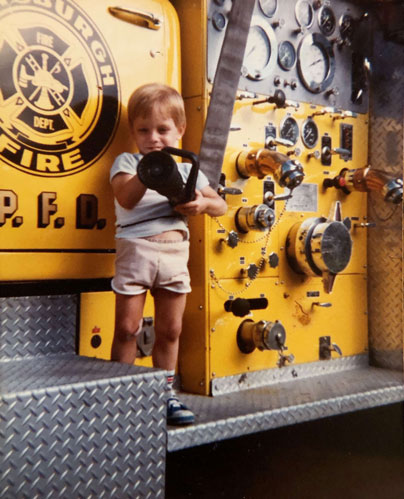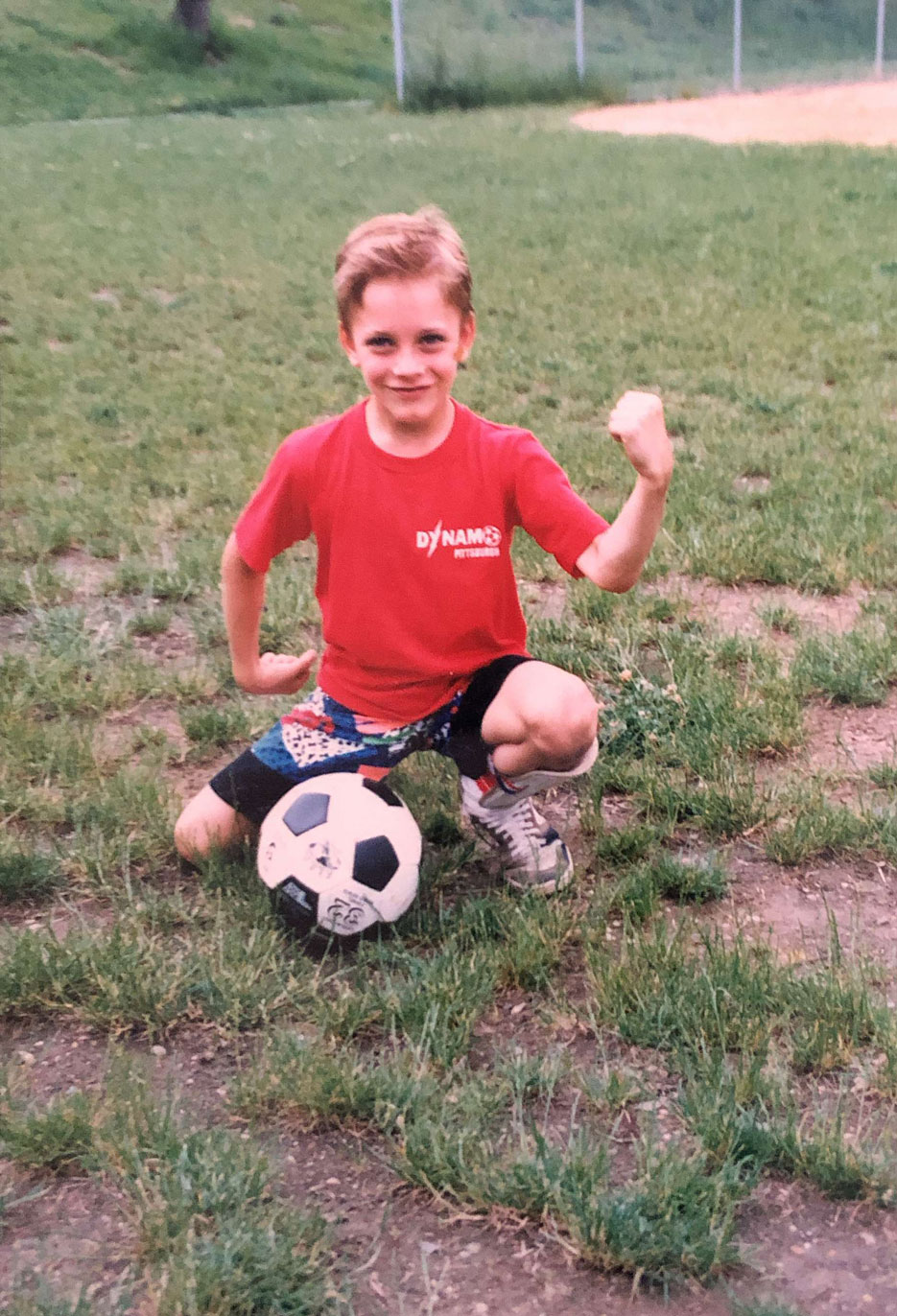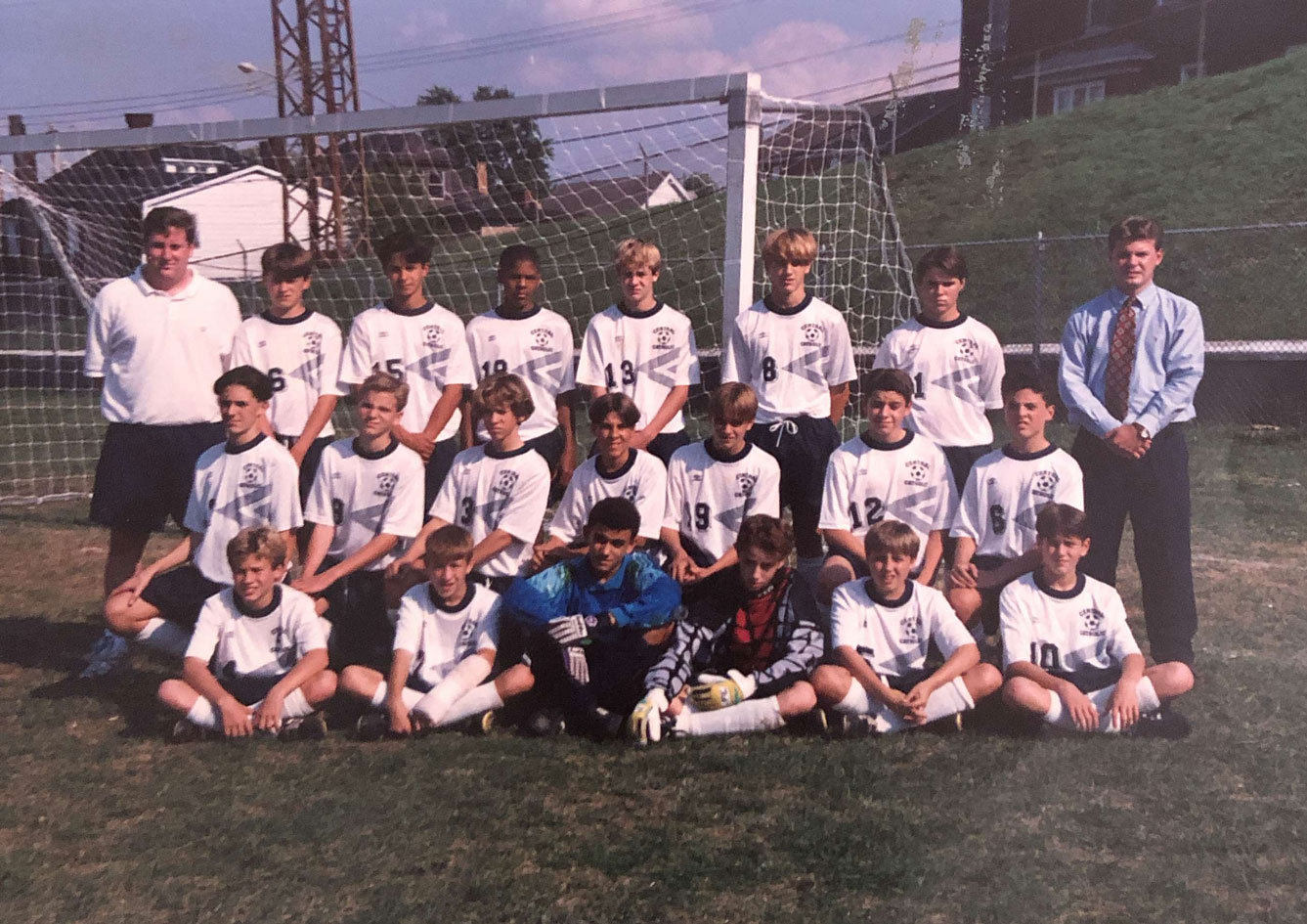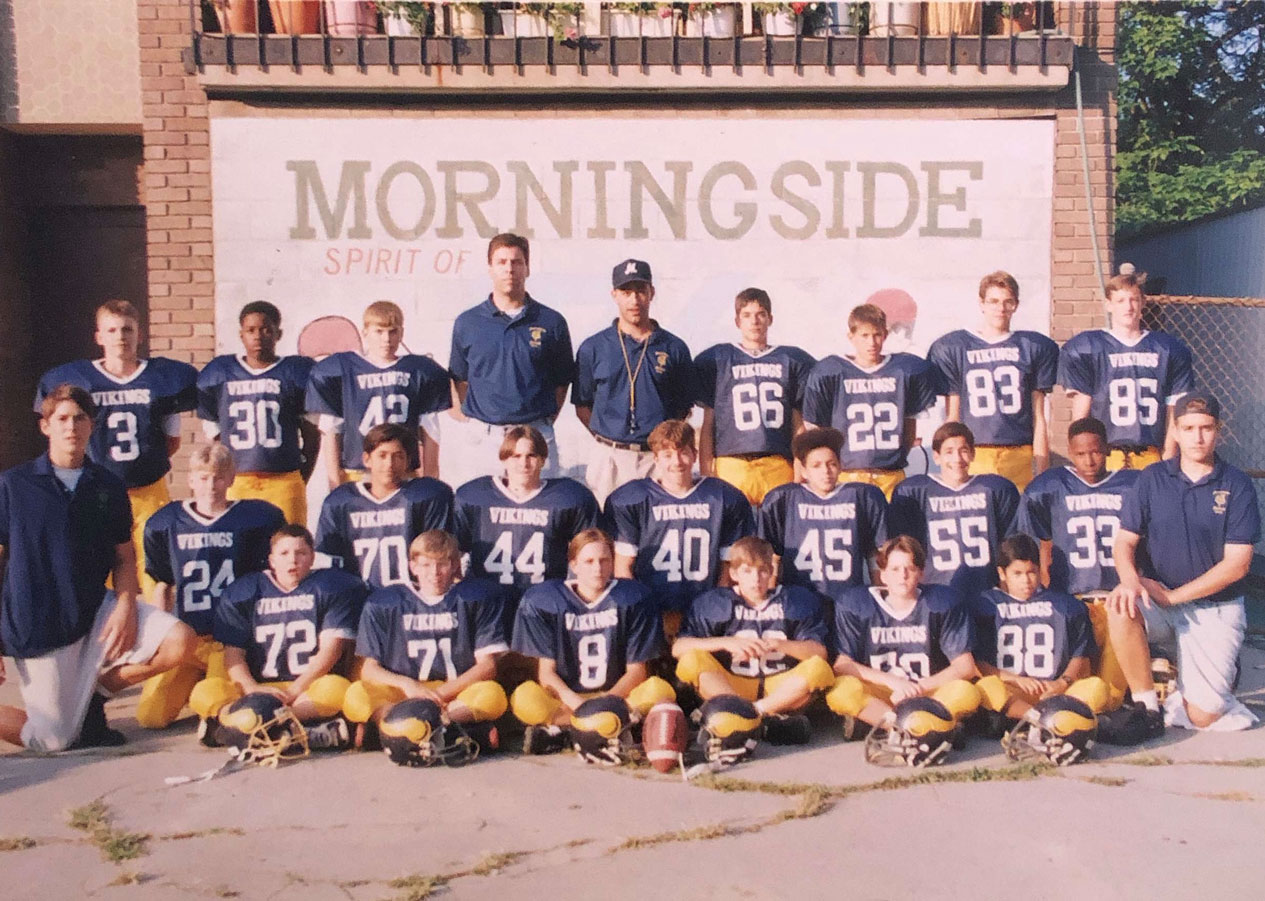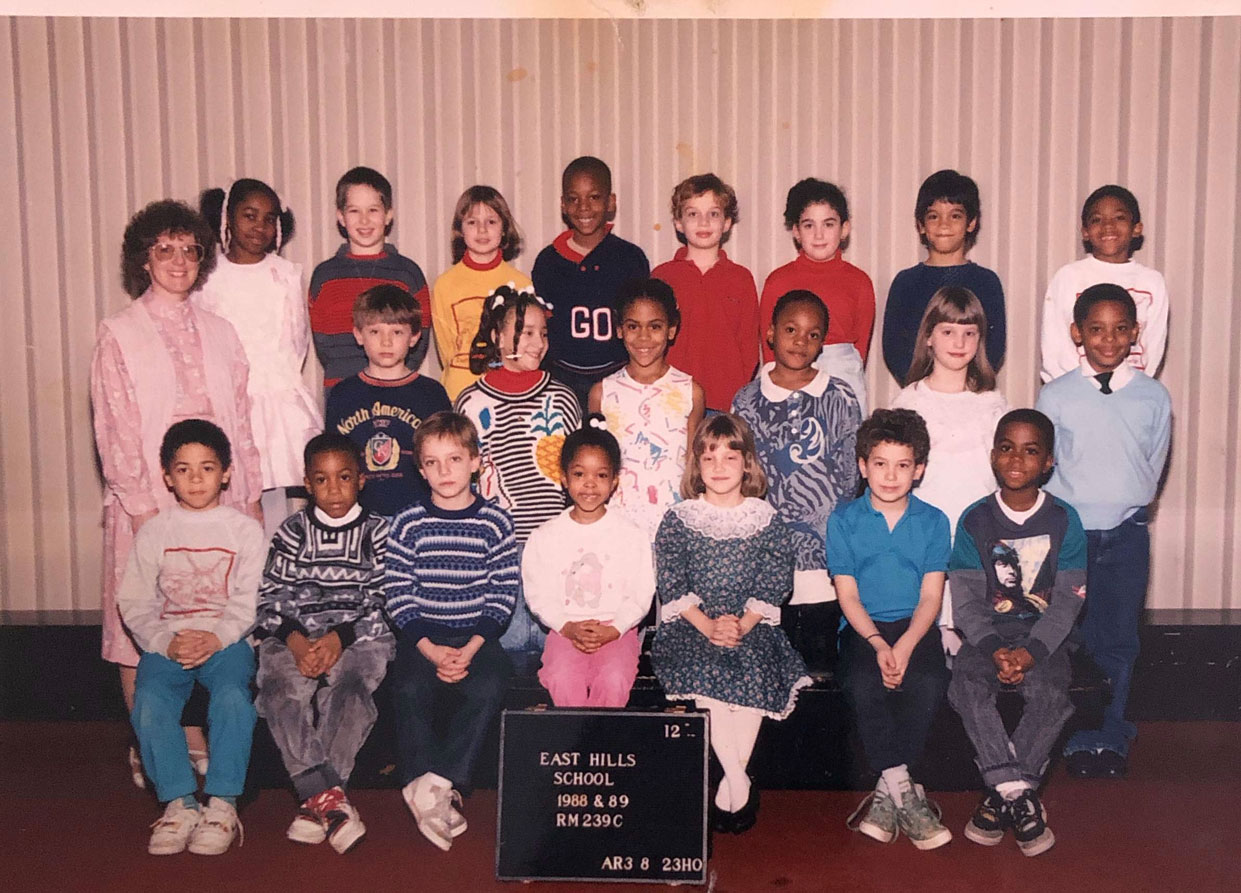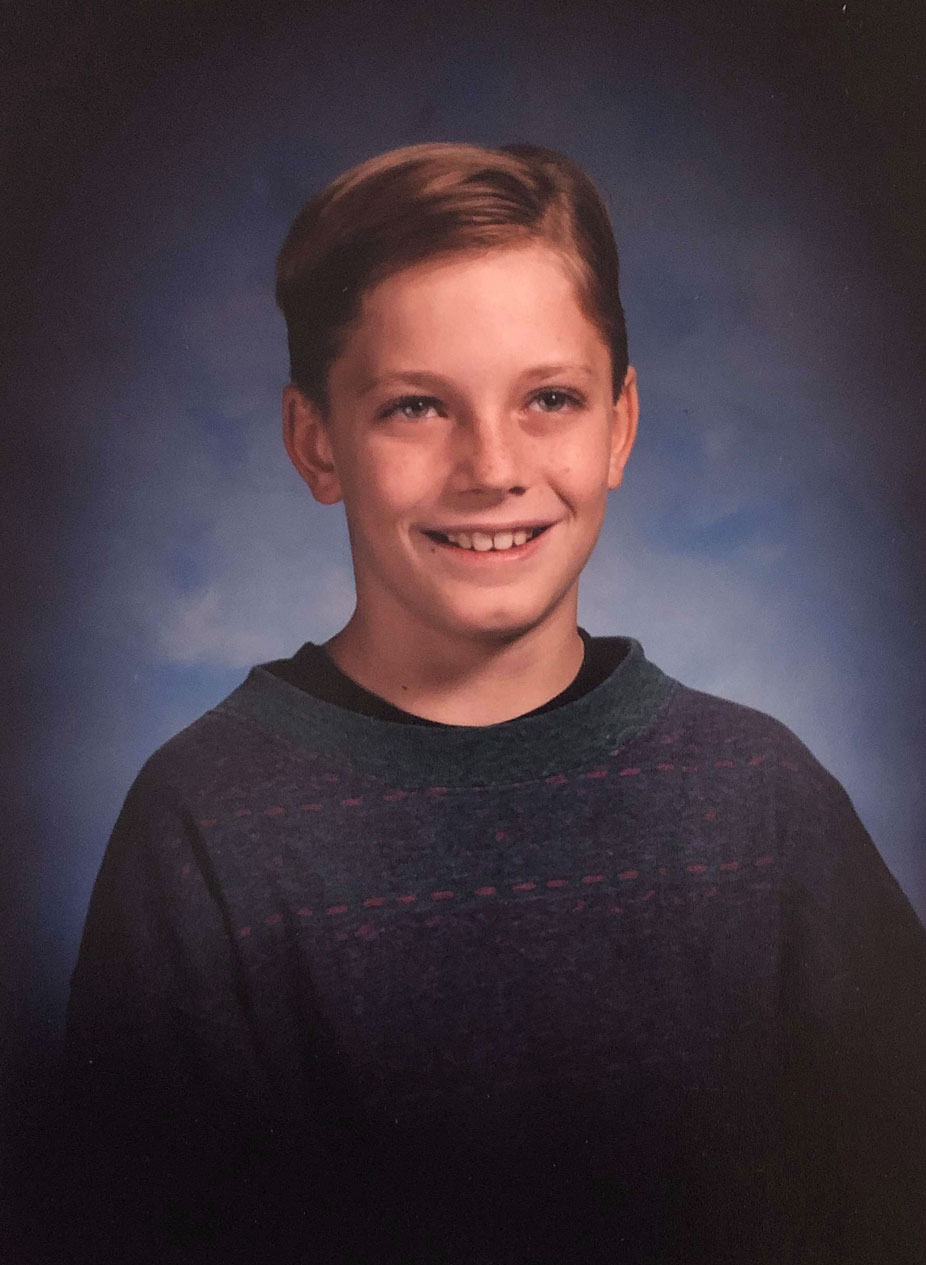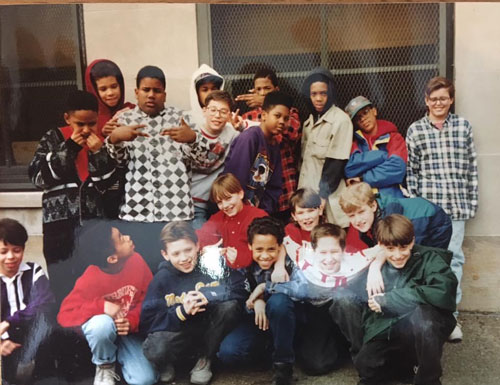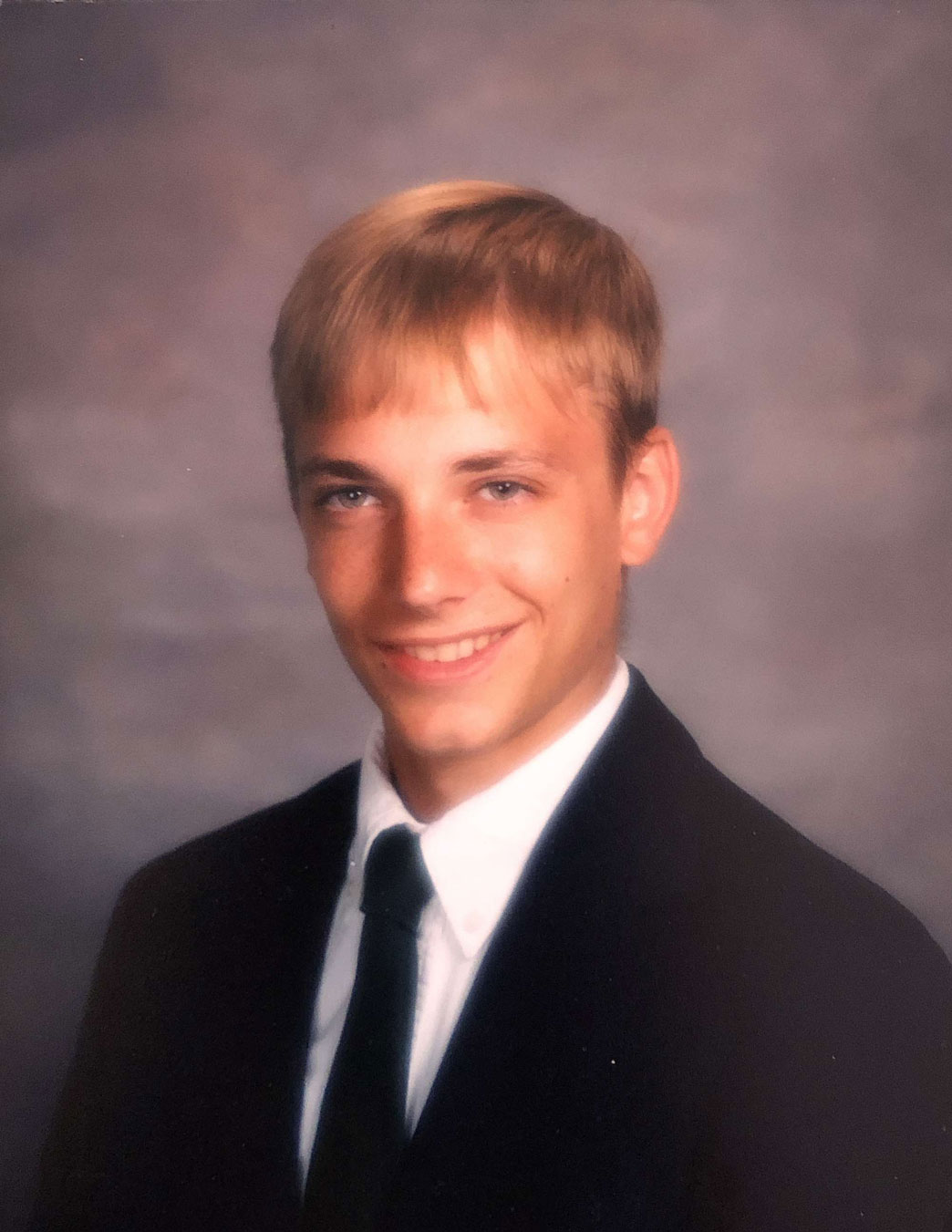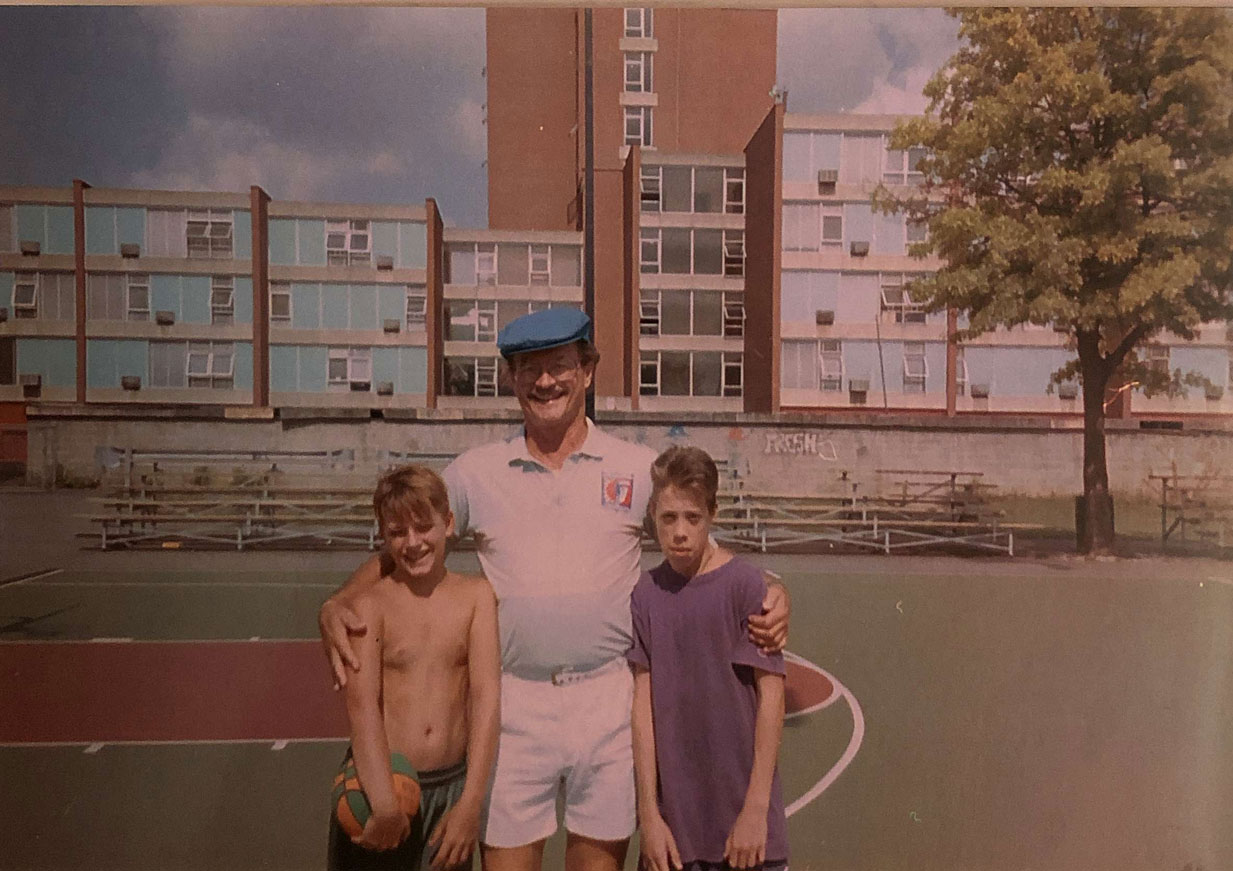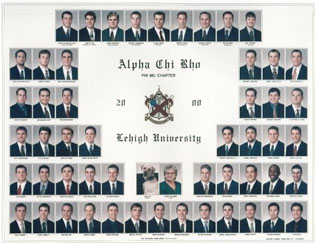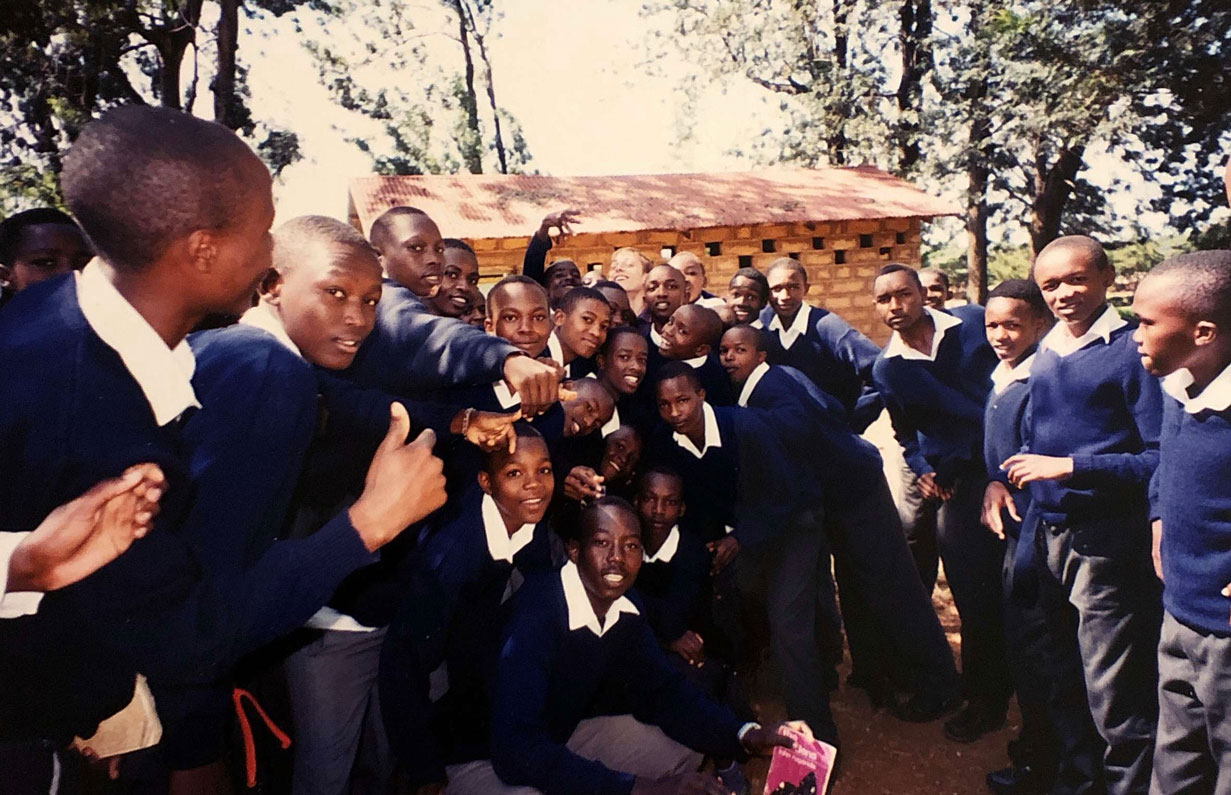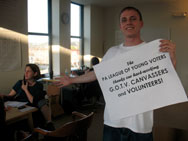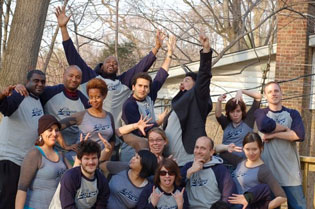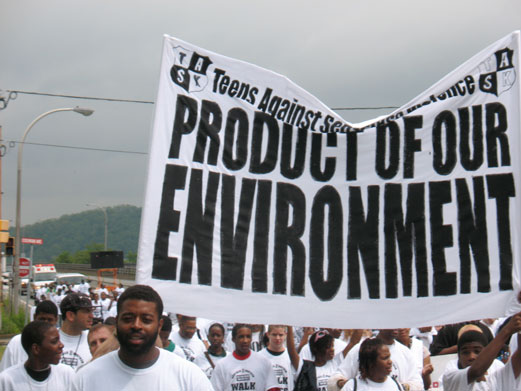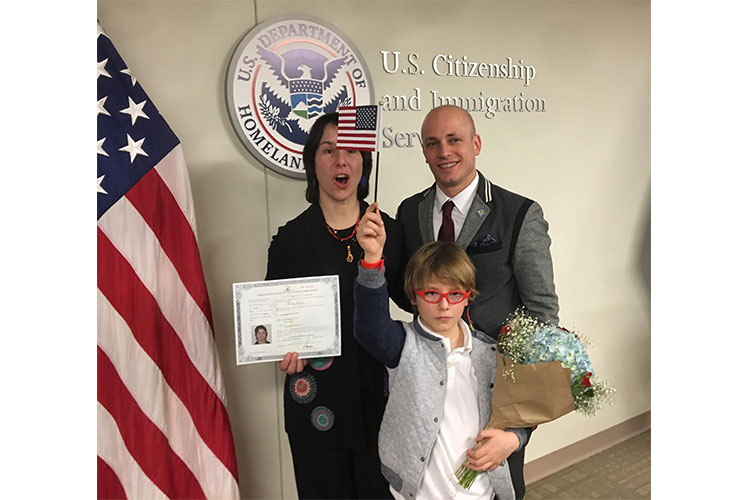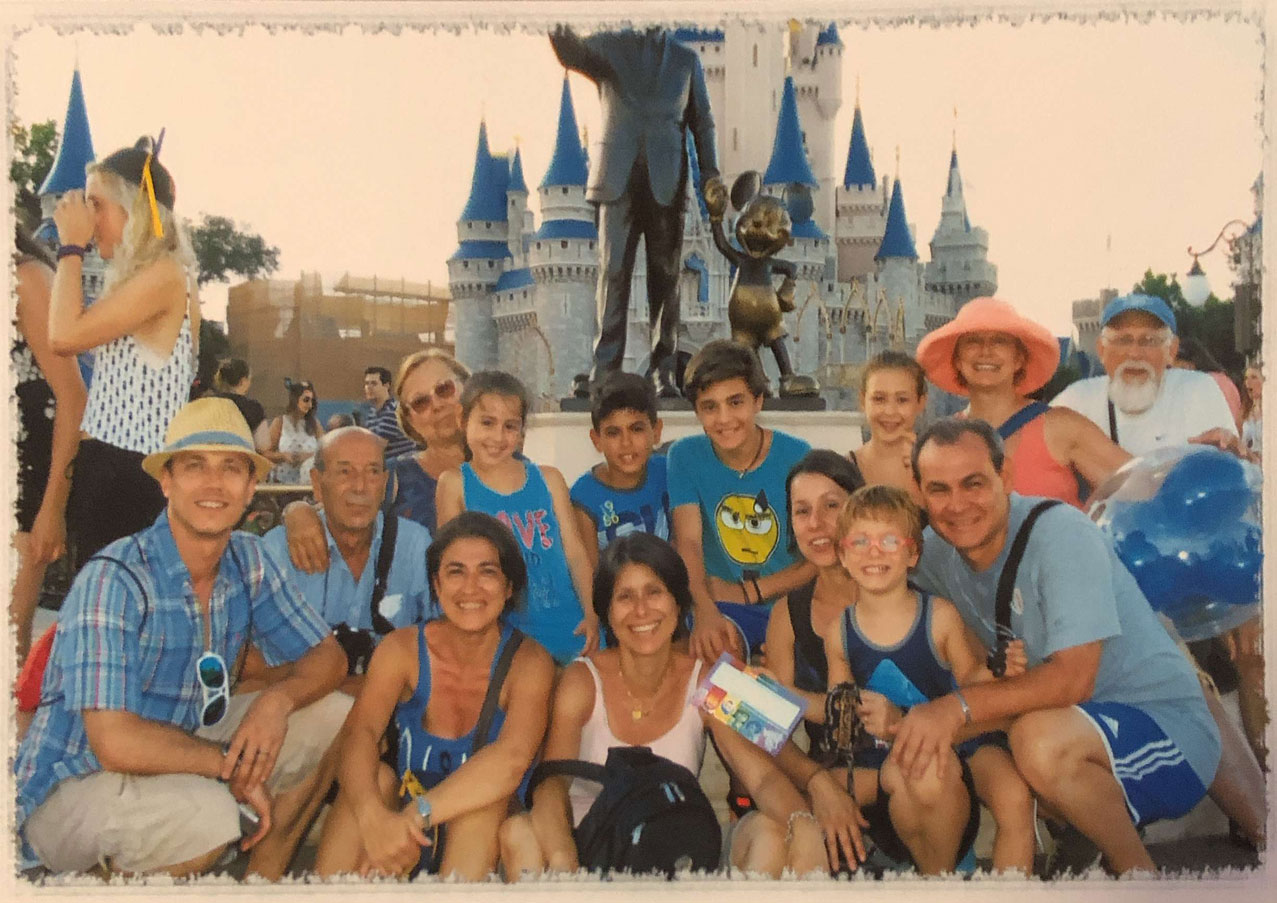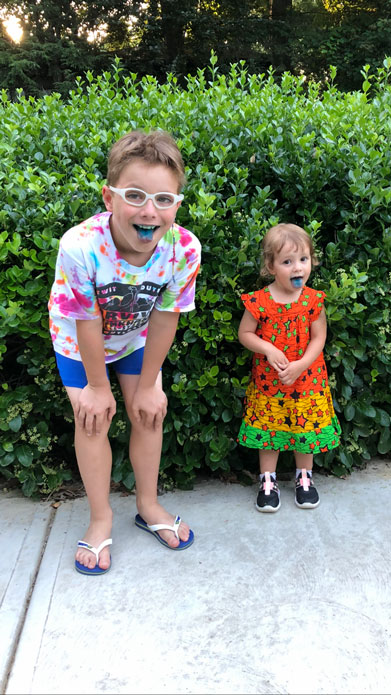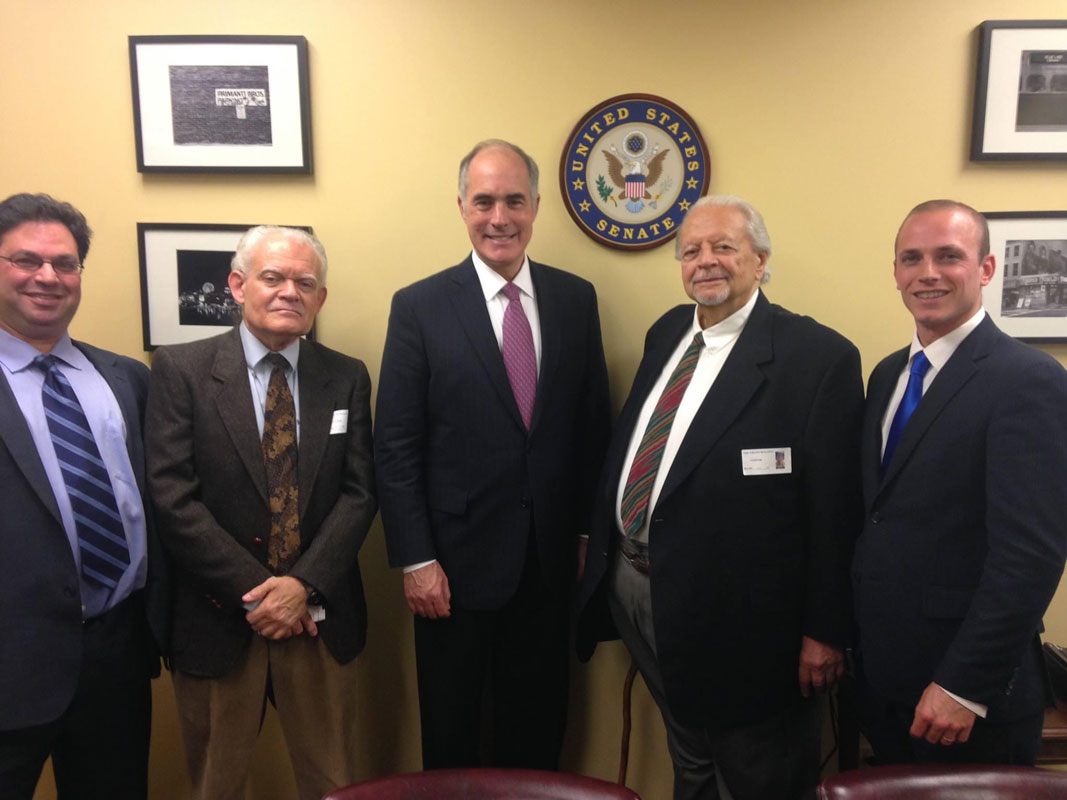Mik’s Story
Early Life ›
Education and Community ›
Career and Family ›
Born in and raised in the Pittsburgh neighborhoods of Bloomfield and East Liberty, Mik Pappas is a true native son of our city. Mik’s father, John Pappas, was raised in Central Pennsylvania and his mother, Daphne (Obradovich) Anderson, was raised in the Pittsburgh area. They met in Pittsburgh while John was attending graduate school for business at the University of Pittsburgh, and Daphne had just graduated from Point Park University (then College) with a degree in modern dance.
John and Daphne married in 1981, but they separated three years later when Daphne fled the household with Mik to escape John’s abuse. John was highly educated, charming, and full of potential. But as a result of John’s addiction to alcohol, and perhaps the emotional toll of his own history as a victim of domestic violence, John squandered his potential and lost his family. Mik maintained a relationship with his paternal grandmother and visited her in central Pennsylvania farm country for a couple of weeks every summer. John ended up spending much of Mik’s childhood in a Maryland state prison.
Mik resolved early on to learn from and avoid John’s misfortunes and mistakes. In turn, he developed deep respect for Daphne’s courage and understanding of how families are impacted by domestic violence in the short and long-term.
Daphne and Mik found refuge for recovery in their family and faith community. They moved in with Daphne’s mother and sister, congregated regularly at the Upper Lawrenceville restaurant that was owned by Mik’s maternal great-grandfather (Chris K’s Diner), and began attending East Liberty Lutheran Church (ELLC). At the time, ELLC was a center of faith-based organizing in opposition to the closing of steel mills in Western Pennsylvania. Similar faith-based campaigns were underway in Rust Belt and other urban industrial centers throughout the United States. One such South Chicago campaign famously initiated a young Barack Obama to community organizing and provided him with what he once called “the best education I ever had.”
Mik still remembers attending his first protest when he was about four years old. It took place outside of Allegheny County Jail and was organized to demand the release of a pastor who was arrested for nonviolent civil disobedience.
It was through ELLC that Daphne met Charles Anderson, a musician and conscientious objector during the War in Vietnam, who came to ELLC to be the church organist. Their relationship began with Charlie giving Daphne and Mik rides to church and soccer practices. It flourished into Charlie taking Daphne on dates to weekly contra dances and being a good sport about Mik usually tagging along. Charlie and Daphne married in 1995, with their backyard garden-wedding officiated by the same pastor whose arrest they had protested years before.
Charlie’s gentlemanly ways taught Mik about the transformative healing power of patience. Mik remains mindful of this lesson when developing procedural justice and trauma-informed practices for his court.
Mik’s formative years were also heavily influenced by youth sports. Daphne signed Mik up for every sports team she could find. He played baseball in Bloomfield and Highland Park (Sacred Heart), soccer in Squirrel Hill (Dynamo Pittsburgh) and the Mon Valley (Jefferson), basketball in Shadyside (Boys & Girls Club), and hockey in Harmar Township (Eastern). Not only did this keep Mik occupied while Daphne worked as a home childcare provider, but Mik truly enjoyed athletics.
Access to quality youth sports and the dedicated adults who make them possible played a significant role in keeping Mik off the streets. It fostered the development of Mik’s character and exposed him to teammates and families from all over Allegheny Count.
For elementary and middle school, Mik attended the Pittsburgh Public Schools’ international studies magnet program (East Hills ISA, Frick ISA). This enabled Mik to study foreign languages throughout his time in PPS and excel in the district’s gifted program. Most importantly, Mik formed strong protective bonds with diverse peers from throughout Pittsburgh that continue to endure.
Mik will never forget the time he missed the bus and arrived late to school at East Hills Elementary, only to find the driveway full of police and EMS vehicles. It was the early 90s and this was a climactic period for gang activity in Pittsburgh. Two boys from Mik’s fourth grade class had discovered a murder victim while walking to school. Mik was given a glimpse into the trauma of this experience when one of the boys came for a sleepover later that year and cried for fear of not being familiar with Mik’s neighborhood. Mik remains in touch with both men.
As involved as Mik was with school, sports, and ELLC, the perils of growing up in East Liberty during the 80s and 90s were unavoidable. East Liberty was Pittsburgh’s second Downtown during the 50s and 60s. Today, it’s home to tech firms large and small, and in this way the neighborhood represents a key component of Pittsburgh’s economic rebirth. But in the 80s and 90s, East Liberty was devastated by economic disinvestment and failed urban development. As a result, it became a major Western Pennsylvania battleground in the so-called War on Drugs.
One time when Mik was about eight, his best friend found a large sum of cash while walking to their karate class at ELLC. The boys split the money and planned to buy video games.But when Daphne found out she made them turn it over to the police. Another time when Mik was about twelve, he discovered a large plastic bag full of a white powdery substance after baseball practice at Peabody High School (now Obama Academy). Mik turned it over to his coach, who then turned it over to the Police.
These were mere casual encounters with the everyday neighborhood conditions that were caused by the War on Drugs. As Mik grew older, these encounters became more serious and direct.
Many of Mik’s friends from the neighborhood became casualties of this failed, unjust War. These were the kids who Daphne took to Schenley Ice Rink, or convinced to try ballet by telling them that it would help their jumpshot; who Daphne took to Sandcastle, or collected money for after a car accident; who came with Mik to his grandmother’s house in Lancaster County; and whose families welcomed Mik into their homes like he was part of their families. All African American boys who eventually became casualties of the War through incarceration, gun violence, overdose death, or the long-term “collateral consequences” of non-violent felony convictions.
Mik survived this period through a combination of determination, privilege, probably a few guardian angels, and a fair amount of pure luck. Essentially, he was blessed to have survived. Recognition of this has made Mik all the more determined to share his blessings by pursuing a mission of equitable justice.
Mik foresaw the challenges that he would encounter as an at-risk teenager from East Liberty in a PPS high school. He asked Daphne and Charlie if he could follow a friend from Frick Middle School, along with some of the kids who he knew from sports, to Central Catholic High School. As usual, with the support of close family and friends, they made the necessary sacrifices to ensure that Mik would have a future. At Central, Mik was introduced to a level of academic competition that he had not yet experienced. Mik rose to this challenge, ending his freshman semester with a lower-half class rank, and improving every semester to eventually graduate in the top 25 of this class.
Mik received an academic scholarship to attend the prestigious Lehigh University in Bethlehem, Pennsylvania, where he majored in American Studies and Minored in Economics. Mik’s undergraduate education and experience awakened his self and social consciousness. He began to better understand history and how the conditions of the world around him were shaped by natural, socio-political, and economic systems. He gained a particular affinity for the writings of American philosopher John Dewey, modern American history and cultural studies, sociology, and legal systems.
Mik joined Alpha Chi Rho (Crow or AXP) fraternity and served as its Philanthropy Chair for consecutive years, working with stakeholders in the surrounding community to organize regular volunteer opportunities for his 50 or so fraternity brothers. He was hired for a work-study position with the University’s Office of Community and Government Affairs. During his senior year, Mik organized a speaker series to raise awareness about the private prison industry by bringing together several university departments and student organizations and raising thousands of dollars to cover speaker fees.
Certainly, some of Mik’s fondest memories and most valuable lessons from these years came from a summer service trip to rural Meru County in the Eastern Province of Kenya, Africa. Mik, along with several other Lehigh students and their chaperones, spent about three weeks working and traveling in Kenya. Their mission was to deliver and set up hundreds of donated, rebuilt computers to primary and secondary schools throughout Meru. Mik was hosted by the family of a teacher from one of these schools who had a PhD in mathematics and earned a modest salary of about $200/month.
These were especially pivotal years for Mik. He understood that his education put him in a privileged position and that, in exchange, he owed a duty of service to his community. Mik graduated from Lehigh resolved to return to Pittsburgh and build a career in the law after first establishing a foundation in community organizing.
As a community organizer, Mik canvassed over ten thousand low-moderate income households in major cities throughout the United States including Newark, Chicago, New Orleans, and of course, Pittsburgh. Mik certainly would agree with President Obama, that this work provided an ideal educational experience for anyone considering a career in public service. It taught Mik to engage marginalized and underrepresented persons on their terms, to give deference to their lived experiences, and to both identify and acknowledge the biases inherent in many of his own assumptions.
While the term “mass incarceration” had not yet been defined and “criminal justice reform” had not yet become a popular political issue, Mik focused on these issues as an organizer. This led him to youth organizing and volunteering with the Pittsburgh chapter of a newly formed national organization called the League of Young Voters. Mik eventually was hired by the League as a Deputy Field Director and then promoted to Pennsylvania Field and Policy Director. In this position, Mik essentially was responsible for enabling as many disenfranchised people as possible to recognize, build, and exercise their political power through the electoral process.
By organizing voters in county jails, public housing communities, and college campuses Mik was laying the groundwork for the growth of the criminal justice reform movement that has now reached mainstream politics.
Mik remembers that in the 80s, it was a community organizer named Jim Ferlo who friends told Daphne to seek out for assistance in preventing a utility shutoff. This is why Mik was honored to make the transition from community to government by accepting an offer to work in the Office of State Senator Jim Ferlo.
Through this position, Mik gained in-depth knowledge of the legislative process, advocated death penalty abolition, helped raise millions to convert the former Connelley Trade School into the Energy Innovation Center, and organized a campaign to save West Penn Hospital. Mik found a great mentor in Senator Ferlo, while serving as a mentor himself through an organization that he founded called Teens Against Senseless Violence (PGH TASK).
Everything changed for Mik when he met the love of his life, Dr. Paola Corti, PhD, a first generation immigrant from Milan, Italy who moved to Pittsburgh to advance her career as a research scientist. Soon after they met Mik knew that the time had come for him to apply to law school and prepare to start a family.
Mik and Paola have deep appreciation for the struggles of immigrant families in our region. They could never forget the incredible stresses of fighting to avoid family separation due to Paola’s immigration status, or being physically distant from Paola’s family in Italy during their health crises and the coronavirus pandemic.
Mik greatly enjoyed the academic rigor and expectations of excellence that law school demanded. He knew that it was the type of intellectual and practical training that would allow him to more effectively pursue a mission of equitable justice.
Mik graduated from the University of Pittsburgh School of Law with a Juris Doctorate and a Certificate in Comparative and International Law. Mik’s background as an organizer enabled him to take an exceptionally holistic and client-centered approach to the practice of law. Additionally, with Mik’s experience in government and advocacy, his skill set reached far beyond what most attorneys could learn in law school. Mik knew that he made the right decision to work as an organizer before applying to law school.
Mik worked for a small firm and primarily practiced in the areas of innocence defense and civil rights litigation, representing workers in employment discrimination matters, representing the accused at every level of the Pennsylvania judicial system, and setting statewide precedents in support of marriage equality and free speech. Mik practiced to a lesser extent in a variety of other areas by protecting consumers from predatory lenders in federal bankruptcy court and by helping small businesses to get started or enforce contracts.
In 2017, Mik ran for the position of Magisterial District Judge to represent the neighborhoods where he was born and raised. He completely shocked the local political establishment with an unprecedented defeat over a 24-year incumbent through mass organizing around the issues of affordable housing and criminal justice reform. Mik’s win catalyzed a movement and set off a chain of events that permanently would alter the political landscape in Allegheny County.
Meanwhile, Mik immediately got to work rebuilding the institution of his district court office from the ground-up. Early in his first term, Mik continued to set precedents by reducing the eviction rate by nearly 40% and eliminating his reliance on cash bail. In addition, Mik has developed innovative alternatives to issuing summary warrants when people cannot afford to pay small amounts of court debt, he has expanded access to restorative justice in the district that he represents, and he has implemented trauma-informed models to ensure that every person who enters his court office believes and perceives that it is a place where the mission of equitable justice lives.
Mik has done all of this while being faithful to the law and working closely with his colleagues to share his perspective and learn from theirs. Mik’s vision of justice is the vision of a next generation of leaders who have fairness in their hearts. Now is the time to expand Mik’s vision for justice county-wide by electing Judge Mik Pappas for Common Pleas.

